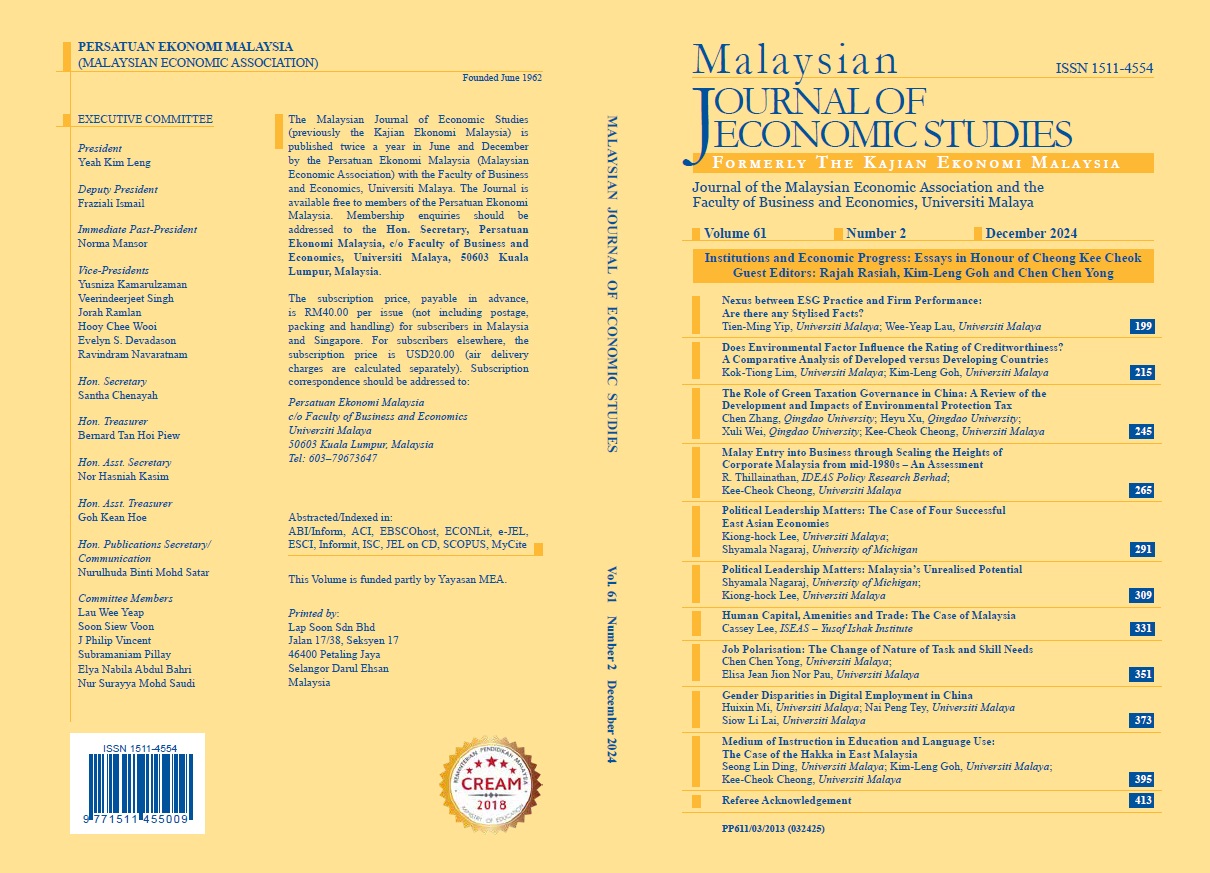Political Leadership Matters: Malaysia’s Unrealised Potential
DOI:
https://doi.org/10.22452/MJES.vol61no2.6Keywords:
Economic growth, political leadership, demeanour, MalaysiaAbstract
Malaysia was among five East Asian nations that successfully leveraged globalisation to achieve sustained high economic growth in the post-war period. But it has been unable to transition beyond upper-middle income to high-income status, unlike the other economies of Japan, South Korea, Taiwan and Singapore. In this paper, we appraise Malaysia’s political leadership to understand the reasons for its restrained growth. Specifically, we assess the demeanour and acumen of Malaysia’s prime ministers in economic decision-making. We find that the early leaders were more transformational and set Malaysia on the path to income growth. However, political leaders since the 1980s have been more transactional, using race and religious divides to entrench political power, cronyism and corruption resulting in a concomitant erosion in social capabilities. The result is serious deficits in the quality of human capital, critical-thinking capabilities of the civil service, and the integrity and independence of the institutions of economic governance. These constrain the ability to face external challenges of a changing world order impacting both Malaysia’s global trade relations and its society. Only a transformational leader can galvanise Malaysians to overcome these challenges and direct much-needed reforms to help Malaysia transition to high-income status.

